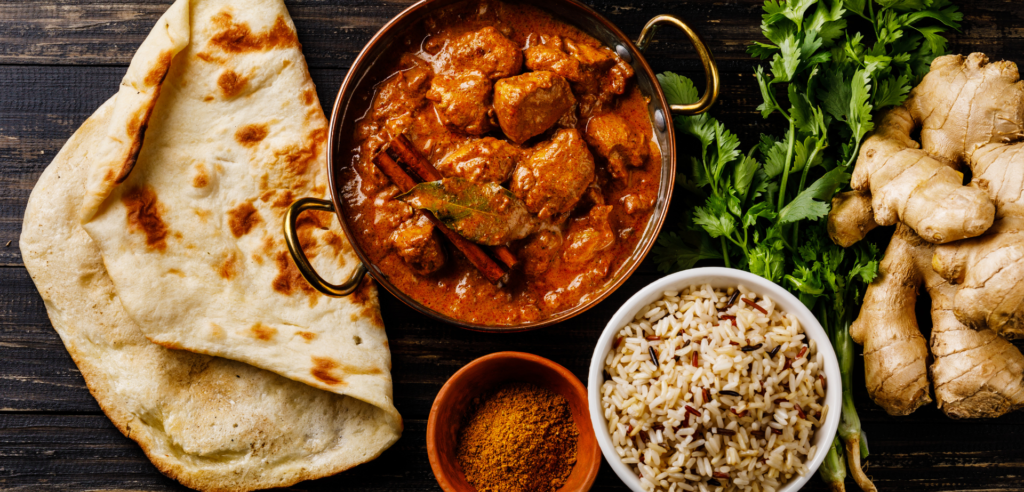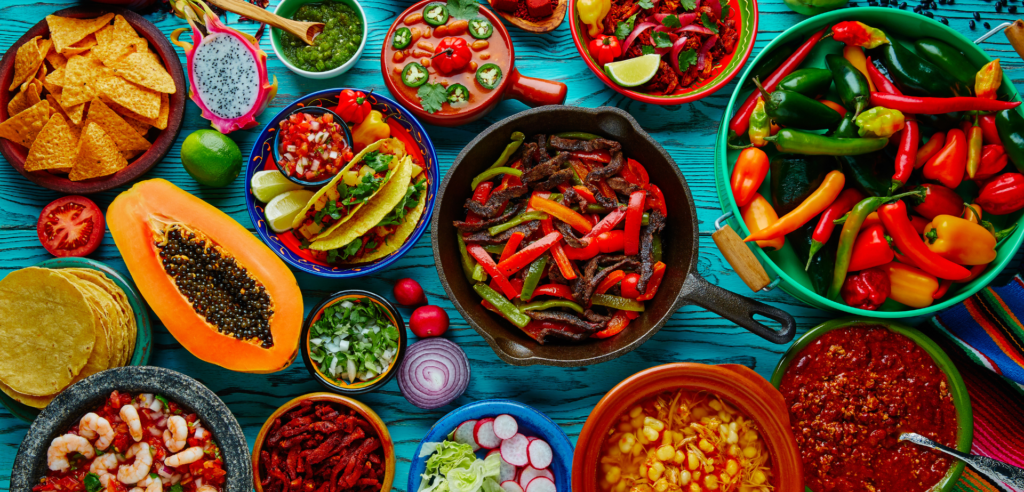I’m sure we’ve all heard mixed information floating around the internet about whether spices and spicy foods are actually good for you. Some have said that spicy foods can trigger acid reflux and heartburn as well as diarrhea and pain among other things. But in actuality, studies have shown that the correlation between eliminating these spicy foods in order to decrease heartburn and related side effects is pretty weak.
Spicy foods have been a staple in many cuisines around the world, adding a burst of flavor and a kick to our meals. Beyond the sensory experience, there’s a growing body of research suggesting that spiced foods may offer health benefits.
There are actually some really good side effects when incorporating spicy foods into your diet so long as you eat them in moderation, as with any other food. Here are a few benefits worth considering when adding spicy foods to your meals.
Reduced Cancer Risk
One intriguing area of study is the potential link between spiced foods and a reduced risk of cancer.
Capsaicin and Its Role

The key compound responsible for the heat in spicy foods is capsaicin. Found in chili peppers, capsaicin has been studied for its various health effects. It is known to have anti-inflammatory, antioxidant, and even anti-cancer properties. These properties stem from capsaicin’s ability to interact with receptors in the body, influencing various physiological processes.
Curcumin and Its Role
Curcumin is a chemical compound found in many spiced foods. Studies have shown that this compound helps slow down the growth of cancers such as breast, cervical, stomach and many other cancers. Curcumin has also shown to kill as much as 80 percent of prostate cancer cells (according to a Cedars-Sinal Medical Center study on mice) while leaving normal and benign cells unharmed. Capsaicin is another compound found in spiced foods like red peppers. This compound is also known to inhibit the spread of prostate cancer cells. Spicy foods also are known to boost immunity. Studies suggest they can act as a decongestant, protecting against irritants and pollutants, like dust and smoke.
Several studies have investigated the potential link between spicy food consumption and a reduced risk of cancer. One notable area of interest is its impact on digestive cancers, including stomach and colorectal cancer. Research suggests that capsaicin may inhibit the growth of cancer cells and induce apoptosis, a process where the body eliminates damaged or abnormal cells.
In a study published in the journal “Cancer Research” in 2006, researchers found that capsaicin caused human prostate cancer cells to undergo apoptosis without harming healthy cells. While these findings are promising, it’s crucial to note that the concentration of capsaicin used in laboratory studies may not be achievable through regular dietary intake.
Living a Longer Life
Who doesn’t want to live a longer life? Well, now you can potentially lengthen your life a little longer by eating a pepper or two. Spice enthusiasts may have an extra reason to savor their favorite dishes—a potential boost in longevity. A study performed by the Chinese Academy of Medical Sciences showed that out a group of half a million people in China who ate spicy foods six or more more times a week for over a five year period had a 14 percent lower risk of premature deaths compared to those who ate spicy foods once a week or less.

The anti-inflammatory and antioxidant properties of capsaicin have been linked to a reduced risk of chronic diseases, including heart disease and diabetes. By incorporating spiced foods into your diet, you may be promoting overall health and reducing the likelihood of developing age-related conditions.
Moreover, studies have suggested that capsaicin may enhance metabolism and contribute to weight management, a factor often associated with a longer and healthier life. While it’s not a magic solution, the combination of a balanced diet, exercise, and the inclusion of spicy foods may contribute to an improved quality of life.
Weight Loss
For those on a weight loss journey, spiced foods might become your new best friends. Capsaicin, which we mentioned helps reduce the spread of cancer cells, also acts as a thermogenic substance in that it raises the body temperature and temporarily boosts the body’s metabolism. This allows the body to burn more calories. Additionally, this compound may help in decreasing one’s appetite and curb cravings. Studies have shown that capsaicin has increased people’s satiety while also reducing their calorie and fat intake.
Additionally, spiced foods can enhance satiety, making you feel fuller faster and potentially reducing overall calorie intake. The heat from capsaicin may also lead to a decreased appetite, preventing overeating and aiding in weight management efforts.

While there are lots of benefits and evidence that show eating spicy foods can be good for one’s overall health, there is also evidence that shows eating too much of these foods can lead to negative effects.
Some believe that spicy foods are linked to ulcers, however, medical opinion is of the notion that ulcers mostly develop from bacterial infections, or from pain medications such as asprin or ibuprofen. In this case, it is not surprising that an intake in spicy foods could worsen one’s ulcer and cause an upset stomach.
Another common negative effect is heartburn, which people normally experience when eating too much spicy food. To reduce the risk of getting heartburn, try eating a smaller serving of spicy food, avoid eating it just before dinner, or not eating spicy meals with soda.
Many of these negative effects can be avoided by simply eating a modest portion of spicy foods without over doing it. No matter how much you love spices, eating in moderation can go a long way for anyone’s diet and well being. Food should be enjoyed and not unpleasant! So if you’re already a spicy food lover, you can be rest assured that continuing to eat what you love is actually a good thing and brings many benefits. And for those who have avoided spicy foods due to the perceived notion that spicy foods are bad for one’s health, this thought can be chalked away!

While spicy foods may not be a cure-all, the evidence supporting their potential health benefits is certainly intriguing. From a reduced risk of certain cancers to potential longevity and weight loss advantages, incorporating a variety of spicy foods into your diet could be a flavorful and health-conscious choice. As with any dietary changes, it’s essential to consult with a healthcare professional to ensure that spicy foods align with your individual health needs. So, spice up your life—literally—and savor the potential benefits of a diet that brings the heat.


